
Environmentalists seem locked in an interminable battle with fossil fuel lobbyists. But earlier apocalyptic narratives offer another reading of conflicts that demand a decisive shift of perspective.

Environmentalists seem locked in an interminable battle with fossil fuel lobbyists. But earlier apocalyptic narratives offer another reading of conflicts that demand a decisive shift of perspective.

Artificial intelligence developers, pillaging existing book translations to improve their products, are preying on both the past and future work of literary translators. But can the demand for subtlety and craft from enough readers and publishers save highly skilled individuals from becoming mere AI post-editors? Scandinavian-language translators at the coalface of innovation speak out.
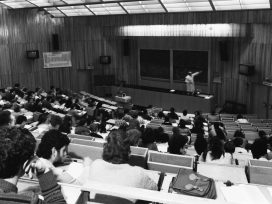
Expectations, standards, and requirements in higher education vary from country to country. In the third episode of the Knowledgeable Youth podcast Ukrainian students embark on the complex subject of tertiary education.
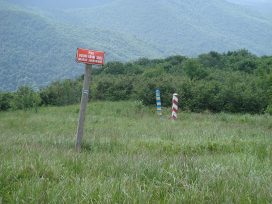
Ukrainian journalists, acting as responsible citizens, prioritize caution over breaking news in support of the war effort. But when does vigilance become self-censorship? And how far is this tendency being manipulated for military gain? Independent media outlets, making their voices heard, defy top-down decision-making.

Modern warfare, currently playing out in the Middle East, relies on algorithms that often foreshadow further violence. But is the predilection for predicting attacks more a deterrent or provocation? And is managing risk a matter of neo-colonial imperialism rather than defence?
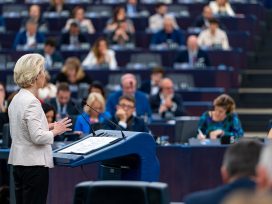
As the EU confronts external challenges – including the war in Ukraine, rising geopolitical tensions, and potential shifts in US policy – will its internal politics align to meet these crises, or will the growing influence of the far right impede progress on the continent’s most pressing issues?
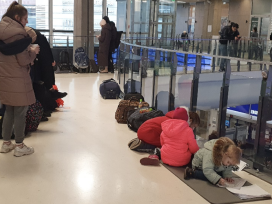
Remaining in a new country or returning home? The Knowledgeable Youth podcast delves into the complex decision-making refugees face when migrating, together with researcher Olena Yermakova.
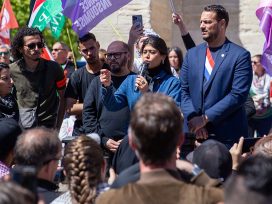
In France, the censorship of pro-Palestinian positions is particularly severe, with antisemitism accusations increasingly being used by the far right. But behind the current wave of repression lies a set of attitudes that are neither new, nor exclusively rightwing.
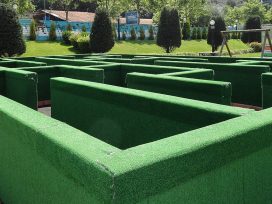
Turkey is no longer a dissident safe haven. High-profile cases of outspoken exiles kidnapped or even killed by spies when in the country attest to the risks. Interviews with Iranian and Russian exiles reveal deteriorating circumstances, from visa refusal to societal racism, police persecution and serious abduction threats, exposing uncertain, shifting political ground.
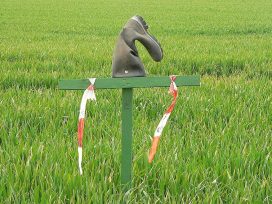
Economic pressures combined with growing climate impacts mean that the next five years will be crucial for the European Green Deal. But with gains for the right in the European Parliament and growing pushback against environmental policies, how can Europe maintain its climate goals?
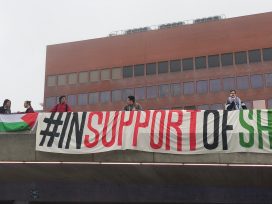
In 2022, Shahd Abusalama, a Palestinian academic working in the UK, was suspended from her teaching position on antisemitism charges. Here she recalls the defamation campaign against her and discusses how her case reveals the structural vulnerability of Palestinians in the West.

The difference between knowing from distance that war is being waged and living that reality couldn’t be more extreme. But can awareness of multiple repercussions turn protective disassociation from violence into active solidarity? ‘The Most Documented War’ symposium in Lviv, Ukraine, provides valuable pointers regarding engagement and responsibility.

When war entered the lives of Ukrainian schoolchildren, their teenage years were put on hold. In the first episode of the Knowledgeable Youth podcast, Ukrainian teens talk about finding their way in a new school system.

Touted as Europe’s largest infrastructure project, the Grand Paris Express promises better connectivity and improved public transport for the French capital. However, for Roma squatters and slum residents, the colossal project has meant forced evictions and further exclusion from society.

Tracing responsibility for honeybee losses in rural Ukraine points to farmers and pesticide-treated rapeseed fields. But whose practices really lie behind the short-term bid to increase crop productivity? And what do the historic uses of agrochemicals tell us about their current weaponization?

Human history is a history of migration, and people continue to be on the move due to a myriad of circumstances. Most of them aren’t merely looking for adventure or doing a fun gap year, but are trying to escape political persecution, climate catastrophes, and, well, war and genocide.